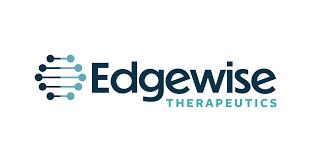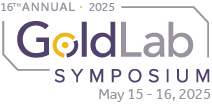

If you experience difficulty with the video you can Watch on YouTube
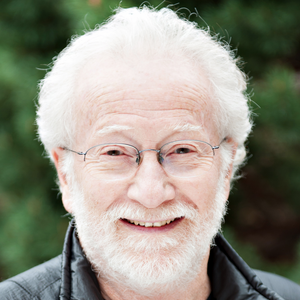
Dr. Larry Gold is the Founder of SomaLogic. Prior to SomaLogic, he also founded and was the Chairman of NeXagen, Inc., which later became NeXstar Pharmaceuticals, Inc. In 1999, NeXstar merged with Gilead Sciences, Inc. to form a global organization committed to the discovery, development and commercialization of novel products that treat infectious diseases.
During his nearly 10 years at NeXstar, Dr. Gold held numerous executive positions including Chairman of the Board, Executive Vice President of R&D, and Chief Science Officer. Before forming NeXagen, he also co-founded and served as Co-Director of Research at Synergen, Inc., a biotechnology company later acquired by Amgen, Inc. Dr. Gold recently became the CEO of Lab79, a new biotech company in Boulder, Colorado.
Since 1970, Dr. Gold has been a professor at the University of Colorado at Boulder. While at the University, he served as the Chairman of the Molecular, Cellular and Developmental Biology Department from 1988 to 1992. Between 1995 and 2013, Dr. Gold received the CU Distinguished Lectureship Award, the National Institutes of Health Merit Award, the Career Development Award, the Lifetime Achievement Award from the Colorado Biosciences Association, and the Chiron Prize for Biotechnology. Dr. Gold was also awarded the 8th International Steven Hoogendijk Prize by the Dutch Batavian Society of Experimental Philosophy in 2018.
In addition, Dr. Gold has been a member of the American Academy of Arts and Sciences since 1993 and the National Academy of Sciences since 1995. He is a fellow of the National Academy of Inventors. Dr. Gold also serves on the Board of Directors for CompleGen, Plato BioPharma, Lab79, Keck Graduate Institute, and the Biological Sciences Curriculum Study.
Dr. Gold established the Gold Lab at the University of Colorado Boulder in 1971. Starting with basic research on bacteria and bacteriophage, the lab shifted its focus to human disease following the invention of the SELEX process in 1989. The Gold Lab today focuses on the utilization of biological and information technology to improve healthcare. Dr. Gold also began holding the GoldLab Symposia in 2010, an annual event that tackles big questions in healthcare. He is determined to change healthcare for the better through teaching, research, and debate among scientists and citizens throughout the world.
Abstract
Abstract coming soon!
Abstract
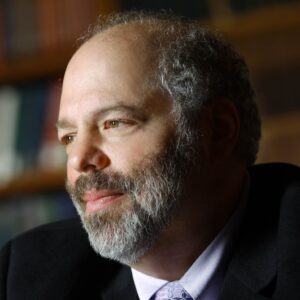 Due to increasing specialization, medicine has created “silos” that are barriers to a holistic view of patients. Patients who currently do not fit into the algorithms of diagnosis are shunted from doctor to doctor and have costly repetitive unhelpful workups. When diagnostic studies do not give a clear answer, their problems are often presumed to be psychosomatic. One group of these patients present with overlapping complaints that include cognitive impairment, “brain fog”, depression, chronic fatigue (chronic fatigue syndrome, CFS), diffuse pain (fibromyalgia), postural change intolerance (postural orthostatic tachycardia syndrome, POTS, and neurally mediated hypotension, NMH), GI dysmotility, chronic nausea, migraine, temporomandibular joint syndrome (TMJ), tinnitus, dizziness, mixed connective tissue disorder, interstitial cystitis, and several others. The symptoms often begin after an infection (such as long-COVID, chronic Lyme disease, chronic Epstein-Barr) or another illness but may be lifelong. A significant number of the patients have an autoimmune disorder and others have hyperflexible joints or other Ehlers-Danlos spectrum disorders. They seem to have both genetic and environmental elements to their illness. These patients share dysfunction of the autonomic nervous system, chronic inflammation, and immune dysregulation. They fall into the spaces (interstitium) between medical specialties and need interstitial care, usually from multidisciplinary clinical teams.
Due to increasing specialization, medicine has created “silos” that are barriers to a holistic view of patients. Patients who currently do not fit into the algorithms of diagnosis are shunted from doctor to doctor and have costly repetitive unhelpful workups. When diagnostic studies do not give a clear answer, their problems are often presumed to be psychosomatic. One group of these patients present with overlapping complaints that include cognitive impairment, “brain fog”, depression, chronic fatigue (chronic fatigue syndrome, CFS), diffuse pain (fibromyalgia), postural change intolerance (postural orthostatic tachycardia syndrome, POTS, and neurally mediated hypotension, NMH), GI dysmotility, chronic nausea, migraine, temporomandibular joint syndrome (TMJ), tinnitus, dizziness, mixed connective tissue disorder, interstitial cystitis, and several others. The symptoms often begin after an infection (such as long-COVID, chronic Lyme disease, chronic Epstein-Barr) or another illness but may be lifelong. A significant number of the patients have an autoimmune disorder and others have hyperflexible joints or other Ehlers-Danlos spectrum disorders. They seem to have both genetic and environmental elements to their illness. These patients share dysfunction of the autonomic nervous system, chronic inflammation, and immune dysregulation. They fall into the spaces (interstitium) between medical specialties and need interstitial care, usually from multidisciplinary clinical teams.Biography
Glenn Jordan Treisman is the Eugene Meyer III Professor of Psychiatry and Medicine at the Johns Hopkins University School of Medicine. He is the Director of the AIDS Psychiatry Service and the Pain Treatment Program at Johns Hopkins. The Pain Treatment Program provides care for chronic pain syndromes and is a national referral resource for patients with intractable pain. He is the Co-Founder and Co-Director of the Amos Center, a program that studies atypical GI disorders and the relationship between food, the nervous system of the GI tract, the microbiome, and disease. Glenn is internationally known for his engaging presentations, his efforts to promote the integration of psychiatry and medicine, and his vigorous commitment to the betterment of patient care for underserved populations.
Abstract
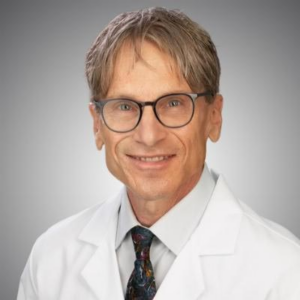 Neuropathic pain is among the most disabling sequelae of spinal cord injuries (SCIs), with prevalence estimated from 65-80%. Common pain descriptors include “sharp, burning, electrical, stabbing, pins-and-needles, squeezing, pressure” sensations. These pains are always perceived in body regions of partial or complete sensory loss from the SCI. Scientific understanding of these pain perceptions has been perplexing, particularly in individuals experiencing these pains in regions of the body of complete paralysis, who are otherwise unable to detect any painful stimulus–no matter how severe–to that paralyzed body region. Historically, failed attempts to treat this pain through spinal cord transection at the SCI site have led to the prevailing thought that changes to the brain’s pain-perceiving centers were the primary source of these pains.
Neuropathic pain is among the most disabling sequelae of spinal cord injuries (SCIs), with prevalence estimated from 65-80%. Common pain descriptors include “sharp, burning, electrical, stabbing, pins-and-needles, squeezing, pressure” sensations. These pains are always perceived in body regions of partial or complete sensory loss from the SCI. Scientific understanding of these pain perceptions has been perplexing, particularly in individuals experiencing these pains in regions of the body of complete paralysis, who are otherwise unable to detect any painful stimulus–no matter how severe–to that paralyzed body region. Historically, failed attempts to treat this pain through spinal cord transection at the SCI site have led to the prevailing thought that changes to the brain’s pain-perceiving centers were the primary source of these pains.Biography
Scott P. Falci is the Founder and Director of the Falci Institute for Spinal Cord Injuries. As a neurosurgeon, he has focused on the surgical treatment of the injured spinal cord for more than 30 years. Scott’s research includes the exploration of the underlying molecular mechanisms of the debilitating neuropathic pain associated with spinal cord injuries. He founded TenZero Biosciences to advance this work, including the proteomic analysis of pain mechanisms that may lead to new treatments.
Scott received his MD and completed his residency at Georgetown University. He holds an AB from Princeton University.
Abstract
Abstract coming soon!
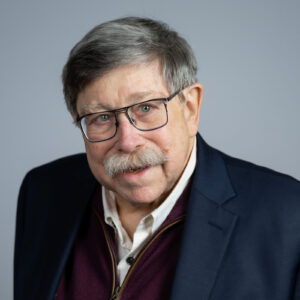
Richard J. Deckelbaum is the Robert R. Williams Professor of Nutrition and the immediate past Director of the Institute of Human Nutrition at Columbia University, where he also holds professorships in pediatrics and epidemiology. He founded and directed divisions of pediatric gastroenterology, hepatology, and nutrition at the Hebrew University of Jerusalem and Columbia. In addition to his basic research in the cell biology of lipids, he has been active in translating basic science findings to practical application in humans with a long involvement in issues of human nutrition and cardiovascular diseases. His primary laboratory-based interests bridged from human plasma, lipoproteins, and now the metabolism of intravenous lipid emulsions, to cellular and gene regulatory effects of dietary fats and different types of fatty acids. His recent research has emphasized molecular mechanisms whereby acute injections of omega-3 lipid emulsions provide cardio- and neuro-protection after acute organ injury. This latter work led to establishing DeckTherapeutics Inc., a Columbia University spin-out developing novel first-in-class intravenous omega-3 diglyceride emulsions for blocking the adverse molecular pathways of devastating and costly organ injuries caused by acute hypoxia-ischemia, such as in ischemic stroke, myocardial infarction, and hypoxia near delivery in newborns. Richard has led program projects relating to gastrointestinal diseases in the Mideast and the USA, funded by the National Institutes of Health (NIH), and the United States Agency for International Development (USAID), in addition to programs funded by industry.
Richard has published over 400 research and other publications, as well as being Co-Editor of a number of books, such as Preventive Nutrition, now in its 5th edition. He has chaired task forces for the American Heart Association, the European Atherosclerosis Society, the Institute of Medicine, and the March of Dimes, and has served on and/or chaired advisory committees of the NIH, RAND Corporation, the USA National Academy of Sciences, and WHO.
Richard has coordinated working groups on “eco-nutrition”, an evolving field integrating agriculture and ecology with food security, climate change, and nutrition. He served on the Food and Nutrition Board of the National Academy of Sciences, and is a Senior Fellow of the Synergos Institute. Among named lectureships and other honors, he is the recipient of the lifetime achievement awards from the Global Health Education Consortium and McGill University. He received his education at McGill University in Montreal, Canada.
Abstract
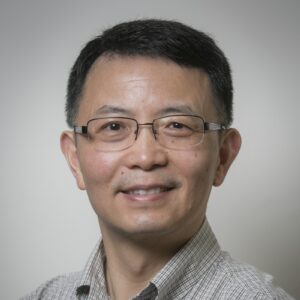 Increasing evidence suggests that resolution of acute pain is an active molecular process and requires the production of specialized pro-resolving mediators (SPMs). SPM superfamily, including resolvins, protectins, and maresins, are derived from omega-3 fatty acids DHA and EPA. Ru-Rong will present evidence that synthetic SPMs produce potent analgesic actions in animal models of acute pain and chronic pain after inflammation, surgery, and nerve injury. He will also demonstrate the mechanisms by which SPMs control pain via neuronal, glial, and immune regulations. He will also discuss new SPM receptors that mediate the pro-resolution, anti-inflammatory, and analgesic actions of SPMs.
Increasing evidence suggests that resolution of acute pain is an active molecular process and requires the production of specialized pro-resolving mediators (SPMs). SPM superfamily, including resolvins, protectins, and maresins, are derived from omega-3 fatty acids DHA and EPA. Ru-Rong will present evidence that synthetic SPMs produce potent analgesic actions in animal models of acute pain and chronic pain after inflammation, surgery, and nerve injury. He will also demonstrate the mechanisms by which SPMs control pain via neuronal, glial, and immune regulations. He will also discuss new SPM receptors that mediate the pro-resolution, anti-inflammatory, and analgesic actions of SPMs.Biography
Ru-Rong Ji, PhD is the William Maixner Professor in Anesthesiology and Distinguished Professor at Duke University. Additionally, he is a Professor of Neurobiology and Cell Biology at the Duke University Medical Center and the Director of the Center for Translational Pain Medicine (CTPM). Before his tenure at Duke University, he was a faculty member at Massachusetts General Hospital and Brigham and Women’s Hospital, and Harvard Medical School.
Ru-Rong has dedicated over 25 years dedicated to exploring the mechanisms and treatments for chronic pain. His laboratory focuses on the role of glial and immune cells in the onset and resolution of pain. His research has led to breakthroughs in understanding the involvement of non-neuronal cells in pain, including glial modulation, neuroimmune interactions, and neuroinflammation. His team was the first to demonstrate the significant analgesic effects of specialized pro-resolving mediators (SPMs) in animal pain models and to elucidate the molecular and cellular mechanisms underlying SPMs’ actions. In his early career, his work on the MAP kinase pathways in inflammatory and neuropathic pain paved the way for understanding peripheral and central sensitization in the development of chronic pain. His recent studies have uncovered the critical roles of the STING/interferon pathway and the PD-L1/PD-1 checkpoint pathway in immunotherapies for pain management. His findings are comprehensively detailed in his 2023 Springer publication, Neuroimmune Interactions in Pain: Mechanisms and Therapeutics.
His scholarly contributions include 250 publications in medical and neuroscience journals. These works have been cited 45,000 times, earning him an H-index of 115 on Google Scholar. For five consecutive years, Dr. Ji has been recognized as a Highly Cited Researcher by Clarivate. His achievements include receiving the NIH Transformative Award, the American Society of Anesthesiologists (ASA) Research Excellence Award, and the American Academy of Pain Medicine (AAPM) Founder’s Award. Over his career, he has mentored more than 100 scientists and currently holds positions on the editorial boards of the Journal of Neuroscience, Anesthesiology, and Pain, as well as serving as Co-Chief Editor of Neuroscience Bulletin.
Ru-Rong earned his PhD from the Shanghai Institute of Physiology at the Chinese Academy of Sciences. He furthered his education with postdoctoral training at Peking University, Karolinska Institute, and Johns Hopkins University.
Abstract
 Traumatic neurological injury can be an event with life-changing consequences. When injury occurs in the central nervous system, there are major obstacles to regenerative processes, therefore, recovery of function is limited. At present, there are no clinical interventions that support the patient by providing neuroprotection in the immediate aftermath of injury, or specific treatments in the chronic recovery period, to restore disrupted neural circuits. Data reported over the last two decades in various models of traumatic injury show that long-chain omega-3 fatty acids such as docosahexaenoic acid (DHA), limit the impact of the injury and support neural repair. DHA significantly reduces neuronal loss after traumatic brain injury (TBI) and spinal cord injury (SCI), modulates neuroinflammation, and promotes neuroplasticity. There is now time to consider translating to the clinic these promising experimental findings, clarifying key questions that would enhance the prospect of clinical success.
Traumatic neurological injury can be an event with life-changing consequences. When injury occurs in the central nervous system, there are major obstacles to regenerative processes, therefore, recovery of function is limited. At present, there are no clinical interventions that support the patient by providing neuroprotection in the immediate aftermath of injury, or specific treatments in the chronic recovery period, to restore disrupted neural circuits. Data reported over the last two decades in various models of traumatic injury show that long-chain omega-3 fatty acids such as docosahexaenoic acid (DHA), limit the impact of the injury and support neural repair. DHA significantly reduces neuronal loss after traumatic brain injury (TBI) and spinal cord injury (SCI), modulates neuroinflammation, and promotes neuroplasticity. There is now time to consider translating to the clinic these promising experimental findings, clarifying key questions that would enhance the prospect of clinical success.Biography
Adina Michael-Titus is a Professor of Neuroscience at Barts and The London School of Medicine and Dentistry, Queen Mary University of London. She is the Lead of the Centre for Neuroscience, Surgery and Trauma at the Blizard Institute. Professor Michael-Titus is a Fellow of the British Pharmacological Society and she spent a period of work early in her career in drug discovery in the pharmaceutical industry. In the last two decades, her research has been focused on neuroprotective and neurorepair strategies in traumatic spinal cord injury and brain injury. Studies in her group illustrate the significant potential of neuroactive lipids such as the long-chain omega-3 fatty acids, in the management of neurotrauma. Professor Michael-Titus is the President-Elect of the International Society for the Study of Fatty Acids and Lipids.
Abstract
Abstract coming soon!
Abstract
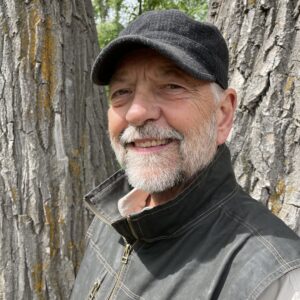 The pervasiveness and effects of trauma are well represented in many helping and scientific professions. In fact, these professions are currently expected to be ‘trauma-informed.’ What is under-represented and more foundational to the emotional health of individuals, families, and communities is the quality of our early, original attachment. This bond provides the blueprint for all relationships, thus uniquely guiding how we love, lead, parent, and work.
The pervasiveness and effects of trauma are well represented in many helping and scientific professions. In fact, these professions are currently expected to be ‘trauma-informed.’ What is under-represented and more foundational to the emotional health of individuals, families, and communities is the quality of our early, original attachment. This bond provides the blueprint for all relationships, thus uniquely guiding how we love, lead, parent, and work.Biography
Duey Freeman is a sought-after teacher, trainer, licensed therapist, and equine professional worldwide. He has taught worldwide and developed a practical attachment theory and human development theory taught to thousands of university students. He has nearly 80,000 direct client hours and co-founded the Gestalt Equine Institute and the Gestalt Institute of the Rockies. He supervises therapists and graduate students and does business and land consultations for new equine therapy sites.
Duey embodies both tenderness and strength in all his relations and work. His quality of contact and relationship with others is authentic and unique. People come from around the world to study with him. He is a true elder and mentor, exploring new horizons in facilitating men’s growth work. Gestalt and Relational Horsemanship are not just approaches to Duey; they are how he walks through the world.
Abstract
 The pervasiveness and effects of trauma are well represented in many helping and scientific professions. In fact, these professions are currently expected to be ‘trauma-informed.’ What is under-represented and more foundational to the emotional health of individuals, families, and communities is the quality of our early, original attachment. This bond provides the blueprint for all relationships, thus uniquely guiding how we love, lead, parent, and work.
The pervasiveness and effects of trauma are well represented in many helping and scientific professions. In fact, these professions are currently expected to be ‘trauma-informed.’ What is under-represented and more foundational to the emotional health of individuals, families, and communities is the quality of our early, original attachment. This bond provides the blueprint for all relationships, thus uniquely guiding how we love, lead, parent, and work.Biography
Duey Freeman is a sought-after teacher, trainer, licensed therapist, and equine professional worldwide. He has taught worldwide and developed a practical attachment theory and human development theory taught to thousands of university students. He has nearly 80,000 direct client hours and co-founded the Gestalt Equine Institute and the Gestalt Institute of the Rockies. He supervises therapists and graduate students and does business and land consultations for new equine therapy sites.
Duey embodies both tenderness and strength in all his relations and work. His quality of contact and relationship with others is authentic and unique. People come from around the world to study with him. He is a true elder and mentor, exploring new horizons in facilitating men’s growth work. Gestalt and Relational Horsemanship are not just approaches to Duey; they are how he walks through the world.
Abstract
 The pervasiveness and effects of trauma are well represented in many helping and scientific professions. In fact, these professions are currently expected to be ‘trauma-informed.’ What is under-represented and more foundational to the emotional health of individuals, families, and communities is the quality of our early, original attachment. This bond provides the blueprint for all relationships, thus uniquely guiding how we love, lead, parent, and work.
The pervasiveness and effects of trauma are well represented in many helping and scientific professions. In fact, these professions are currently expected to be ‘trauma-informed.’ What is under-represented and more foundational to the emotional health of individuals, families, and communities is the quality of our early, original attachment. This bond provides the blueprint for all relationships, thus uniquely guiding how we love, lead, parent, and work.Biography
Duey Freeman is a sought-after teacher, trainer, licensed therapist, and equine professional worldwide. He has taught worldwide and developed a practical attachment theory and human development theory taught to thousands of university students. He has nearly 80,000 direct client hours and co-founded the Gestalt Equine Institute and the Gestalt Institute of the Rockies. He supervises therapists and graduate students and does business and land consultations for new equine therapy sites.
Duey embodies both tenderness and strength in all his relations and work. His quality of contact and relationship with others is authentic and unique. People come from around the world to study with him. He is a true elder and mentor, exploring new horizons in facilitating men’s growth work. Gestalt and Relational Horsemanship are not just approaches to Duey; they are how he walks through the world.
Abstract
 Access to a good education has empirically been shown to significantly increase one's chances of enjoying good health. Conversely, a poor education virtually guarantees poor health outcomes. Yet, over the past half-century, the United States Supreme Court has steadily marched away from the guarantees of equal educational opportunity for underrepresented children, and thus marched deliberately towards widening already egregious health disparities. Most recently, in SFFA v. President and Fellows of Harvard College et al., the Supreme Court pronounced, “Today, the Court holds that the Equal Protection Clause of the Fourteenth Amendment does not tolerate this practice [admitting or rejecting applicants based in part on race] . . . ” explaining that the Court is unsure how to measure the benefits of affirmative action when framed as “whether leaders have been adequately ‘train[ed]’ or whether the exchange of ideas is ‘robust’ or whether ‘new knowledge’ is being developed.”
Access to a good education has empirically been shown to significantly increase one's chances of enjoying good health. Conversely, a poor education virtually guarantees poor health outcomes. Yet, over the past half-century, the United States Supreme Court has steadily marched away from the guarantees of equal educational opportunity for underrepresented children, and thus marched deliberately towards widening already egregious health disparities. Most recently, in SFFA v. President and Fellows of Harvard College et al., the Supreme Court pronounced, “Today, the Court holds that the Equal Protection Clause of the Fourteenth Amendment does not tolerate this practice [admitting or rejecting applicants based in part on race] . . . ” explaining that the Court is unsure how to measure the benefits of affirmative action when framed as “whether leaders have been adequately ‘train[ed]’ or whether the exchange of ideas is ‘robust’ or whether ‘new knowledge’ is being developed.”Biography
Dayna Bowen Matthew is the Dean and Harold H. Greene Professor of Law at the George Washington University Law School. A leader in public health and civil rights law who focuses on disparities in health, healthcare, and the social determinants of health, Dayna joined GW Law in 2020. She is also the Founder and inaugural faculty Director of GW’s newly chartered Equity Institute, an interdisciplinary research hub dedicated to addressing racial, ethnic, and socioeconomic injustice. A prolific writer, Dayna is the author of two bestselling books, Just Medicine: A Cure for Racial Inequality in American Health Care, and the recently released Just Health: Treating Structural Racism to Heal America, and the Co-Author of a case book on public health law, ethics, and policy.
Abstract
 The pervasiveness and effects of trauma are well represented in many helping and scientific professions. In fact, these professions are currently expected to be ‘trauma-informed.’ What is under-represented and more foundational to the emotional health of individuals, families, and communities is the quality of our early, original attachment. This bond provides the blueprint for all relationships, thus uniquely guiding how we love, lead, parent, and work.
The pervasiveness and effects of trauma are well represented in many helping and scientific professions. In fact, these professions are currently expected to be ‘trauma-informed.’ What is under-represented and more foundational to the emotional health of individuals, families, and communities is the quality of our early, original attachment. This bond provides the blueprint for all relationships, thus uniquely guiding how we love, lead, parent, and work.Biography
Duey Freeman is a sought-after teacher, trainer, licensed therapist, and equine professional worldwide. He has taught worldwide and developed a practical attachment theory and human development theory taught to thousands of university students. He has nearly 80,000 direct client hours and co-founded the Gestalt Equine Institute and the Gestalt Institute of the Rockies. He supervises therapists and graduate students and does business and land consultations for new equine therapy sites.
Duey embodies both tenderness and strength in all his relations and work. His quality of contact and relationship with others is authentic and unique. People come from around the world to study with him. He is a true elder and mentor, exploring new horizons in facilitating men’s growth work. Gestalt and Relational Horsemanship are not just approaches to Duey; they are how he walks through the world.
Abstract
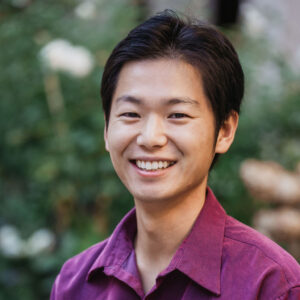 Aging leads to the degradation of function and the onset of diseases in nearly all tissues and organs. Our research has been centered on brain aging, which results in cognitive decline and is a major risk factor for sporadic neurodegenerative diseases such as Alzheimer's. While brain cell- and tissue-intrinsic factors are likely essential in driving the aging process, recent studies document a remarkable sensitivity of the brain to circulatory factors. Thus, blood-borne factors from young mice or humans are sufficient to counteract aspects of brain aging and improve cognitive function in old mice. Conversely, factors from old mice are detrimental to young mice and impair cognition. We found evidence that the cerebrovasculature is an important target of circulatory factors and that brain endothelial cells show prominent age-related transcriptional changes in response to plasma. Furthermore, plasma proteins are taken up broadly into the young brain through receptor-mediated transport at the vasculature, a process that decreases with age. At the same time, proteins originating in the brain can be detected in plasma. This allows us to observe physiological shifts related to brain aging in the blood and offers novel methods to monitor individual brain physiology and aging. These findings open opportunities to identify biomarkers and regulators of aging, in general, and for the brain and other organs specifically.
Aging leads to the degradation of function and the onset of diseases in nearly all tissues and organs. Our research has been centered on brain aging, which results in cognitive decline and is a major risk factor for sporadic neurodegenerative diseases such as Alzheimer's. While brain cell- and tissue-intrinsic factors are likely essential in driving the aging process, recent studies document a remarkable sensitivity of the brain to circulatory factors. Thus, blood-borne factors from young mice or humans are sufficient to counteract aspects of brain aging and improve cognitive function in old mice. Conversely, factors from old mice are detrimental to young mice and impair cognition. We found evidence that the cerebrovasculature is an important target of circulatory factors and that brain endothelial cells show prominent age-related transcriptional changes in response to plasma. Furthermore, plasma proteins are taken up broadly into the young brain through receptor-mediated transport at the vasculature, a process that decreases with age. At the same time, proteins originating in the brain can be detected in plasma. This allows us to observe physiological shifts related to brain aging in the blood and offers novel methods to monitor individual brain physiology and aging. These findings open opportunities to identify biomarkers and regulators of aging, in general, and for the brain and other organs specifically.Biography
Hamilton Oh is a PhD student and National Science Foundation Graduate Fellow at Stanford University in Tony Wyss-Coray’s lab. He is a wet lab stem cell biologist turned computational biologist, now using large-scale proteomics and machine learning to understand how we age and develop disease, with a focus on brain aging and neurodegenerative diseases. For his future research, he is particularly interested in how variants in the human genetic code leave certain individuals susceptible to environmental stressors that trigger chronic diseases such as chronic pain, chronic kidney disease, and dementia.
Abstract
 More than a decade ago, SomaLogic published the first paper to accurately quantify the concentrations of many human proteins (epitopes really, since we used as binding reagents SOMAmers/aptamers that contacted a small domain of a target protein – about a thousand square angstroms or so). The emphasis since that early paper has been on expanding the number of proteins measured (now at more than 11,000 at SomaLogic), making sure that the accuracy/CV’s of the measurements were high. Many clinical samples—largely plasma, some sera, urine, and even some tissue extracts—were used to get a feel for the kinds of human biology that might be revealed through proteomics of this kind. Our North Star was to provide something equivalent to thousands of individual ELISA’s done easily on small volumes of precious samples.
More than a decade ago, SomaLogic published the first paper to accurately quantify the concentrations of many human proteins (epitopes really, since we used as binding reagents SOMAmers/aptamers that contacted a small domain of a target protein – about a thousand square angstroms or so). The emphasis since that early paper has been on expanding the number of proteins measured (now at more than 11,000 at SomaLogic), making sure that the accuracy/CV’s of the measurements were high. Many clinical samples—largely plasma, some sera, urine, and even some tissue extracts—were used to get a feel for the kinds of human biology that might be revealed through proteomics of this kind. Our North Star was to provide something equivalent to thousands of individual ELISA’s done easily on small volumes of precious samples.Biography
Dr. Larry Gold is the Founder of SomaLogic. Prior to SomaLogic, he also founded and was the Chairman of NeXagen, Inc., which later became NeXstar Pharmaceuticals, Inc. In 1999, NeXstar merged with Gilead Sciences, Inc. to form a global organization committed to the discovery, development and commercialization of novel products that treat infectious diseases.
During his nearly 10 years at NeXstar, Dr. Gold held numerous executive positions including Chairman of the Board, Executive Vice President of R&D, and Chief Science Officer. Before forming NeXagen, he also co-founded and served as Co-Director of Research at Synergen, Inc., a biotechnology company later acquired by Amgen, Inc. Dr. Gold recently became the CEO of Lab79, a new biotech company in Boulder, Colorado.
Since 1970, Dr. Gold has been a professor at the University of Colorado at Boulder. While at the University, he served as the Chairman of the Molecular, Cellular and Developmental Biology Department from 1988 to 1992. Between 1995 and 2013, Dr. Gold received the CU Distinguished Lectureship Award, the National Institutes of Health Merit Award, the Career Development Award, the Lifetime Achievement Award from the Colorado Biosciences Association, and the Chiron Prize for Biotechnology. Dr. Gold was also awarded the 8th International Steven Hoogendijk Prize by the Dutch Batavian Society of Experimental Philosophy in 2018.
In addition, Dr. Gold has been a member of the American Academy of Arts and Sciences since 1993 and the National Academy of Sciences since 1995. He is a fellow of the National Academy of Inventors. Dr. Gold also serves on the Board of Directors for CompleGen, Plato BioPharma, Lab79, Keck Graduate Institute, and the Biological Sciences Curriculum Study.
Dr. Gold established the Gold Lab at the University of Colorado Boulder in 1971. Starting with basic research on bacteria and bacteriophage, the lab shifted its focus to human disease following the invention of the SELEX process in 1989. The Gold Lab today focuses on the utilization of biological and information technology to improve healthcare. Dr. Gold also began holding the GoldLab Symposia in 2010, an annual event that tackles big questions in healthcare. He is determined to change healthcare for the better through teaching, research, and debate among scientists and citizens throughout the world.



